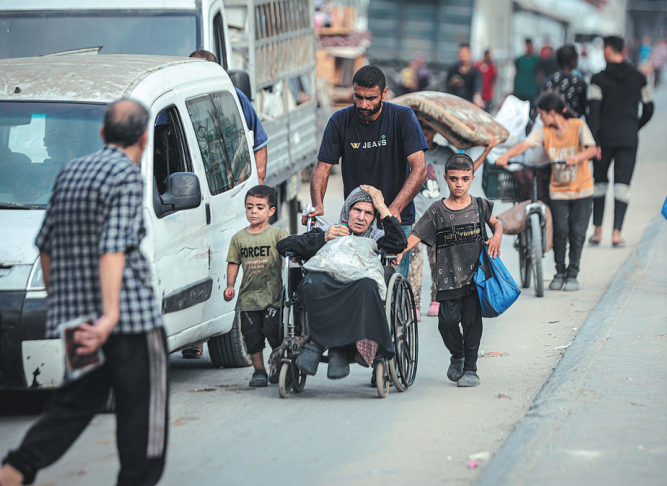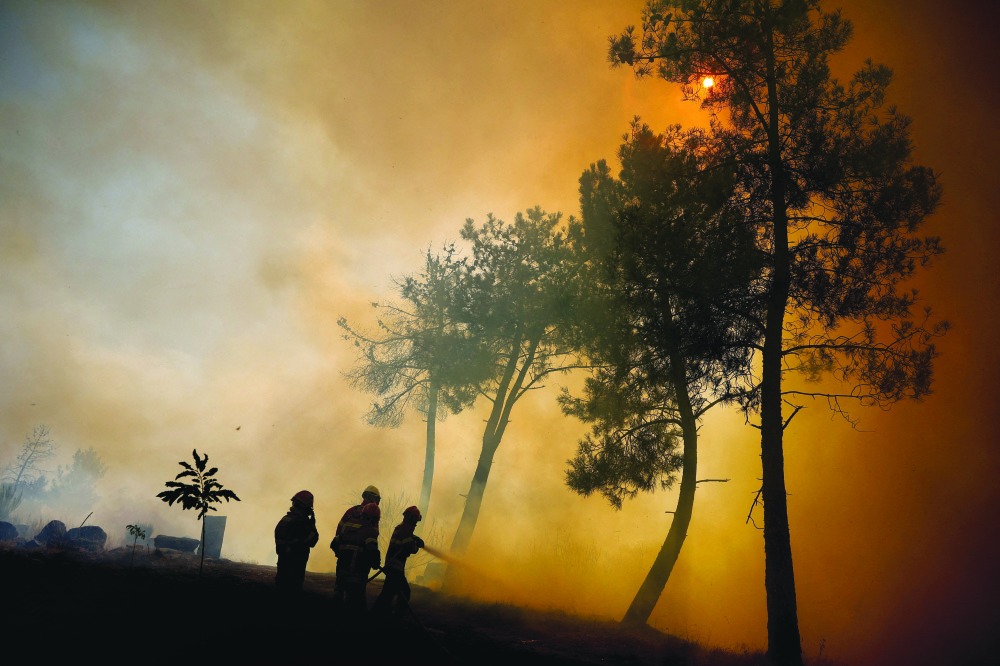Israeli military approves 'main framework' for Gaza offensive
Escalation draws criticisms amid dire humanitarian situation in enclave


The Israeli military said on Wednesday it had approved the "main framework" for a new offensive in the Gaza Strip, as Hamas condemned what it called "aggressive" Israeli ground incursions in Gaza City.
The approval for the expanded offensive comes days after Israel's security cabinet called for the seizure of Gaza's largest city, following 22 months of conflict that have created dire humanitarian conditions in the Palestinian territory.
Israeli armed forces chief Eyal Zamir "approved the main framework for the IDF's operational plan in the Gaza Strip", a statement released by the army said.
Prime Minister Benjamin Netanyahu's government has not provided a precise timetable for when Israeli troops will enter Gaza City, where thousands have taken refuge after fleeing previous offensives.
Ismail Al-Thawabta, a Hamas official in Gaza, told AFP on Wednesday that "the Israeli occupation forces continue to carry out aggressive incursions in Gaza City".
"These assaults represent a dangerous escalation aimed at imposing a new reality on the ground by force, through a scorched-earth policy and the complete destruction of civilian property," he added.
Gaza's civil defense agency spokesman Mahmoud Basal told Xinhua News Agency that Israeli strikes or fire had killed at least 41 people across Gaza on Wednesday.
Israel's plans to expand its offensive into Gaza City come as diplomacy aimed at securing an elusive ceasefire and hostage release deal has stalled for weeks, after the latest round of negotiations broke down in July.
Egypt said on Tuesday it was working with fellow Gaza mediators Qatar and the United States to broker a 60-day truce "with the release of some hostages and some Palestinian detainees, and the flow of humanitarian and medical assistance to Gaza without restrictions, without conditions".
Hamas said early on Wednesday that a senior delegation had arrived in Cairo for "preliminary talks" with Egyptian officials.
Domestic opposition
Israel's plans to expand the Gaza conflict have sparked international outcry as well as domestic opposition. Reserve and retired pilots who served in the Israeli air force on Tuesday rallied in Tel Aviv to demand an end to the conflict.
United Nations Secretary-General Antonio Guterres has put Israel on notice about the possible listing of its armed forces as one of the parties "credibly suspected" of sexual violence in conflict.
Guterres also issued the same warning to Palestinian militant group Hamas, and both Hamas and Israel rejected the accusations.
Guterres, in his letter to Israel, said he was "gravely concerned about credible information of violations by Israeli armed and security forces "against the Palestinians in several prisons, a detention center, as well as a military base, Reuters reported.
A report in March by the UN Independent International Commission of Inquiry on the Occupied Palestinian Territory, including East Jerusalem, and Israel, noted that Israel had increasingly employed sexual, reproductive and other forms of gender-based violence against Palestinians.
Nagapushpa Devendra, a West Asia analyst and research scholar at the University of Erfurt in Germany, told China Daily that sexual violence in conflict remains a deeply troubling tool used to control the population. "Despite clear international prohibitions, it persists due to slow and uneven accountability mechanisms," she said.
Meanwhile, a group of 26 foreign ministers, including those from Australia, Japan, the United Kingdom, Canada, and the European Union, again called on Israel to provide authorization for all international nongovernmental organizations' aid shipments and to unblock essential humanitarian actors from operating.
In a joint statement on Tuesday, they said the humanitarian suffering in Gaza "has reached unimaginable levels" with famine "unfolding before our eyes" and that urgent action "is needed now to halt and reverse starvation". They also called for humanitarian space to be protected and that aid "should never be politicized".
"We need a ceasefire that can end the war, for hostages to be released and aid to enter Gaza by land unhindered," the statement said.
Devendra said the recent joint statement by international partners highlights the broader humanitarian crisis in Gaza, such as famine, restricted NGO access and the urgent need for unhindered aid, showing once again how sexual violence, armed conflict and civilian suffering are closely intertwined.
Agencies contribute to this story.
































